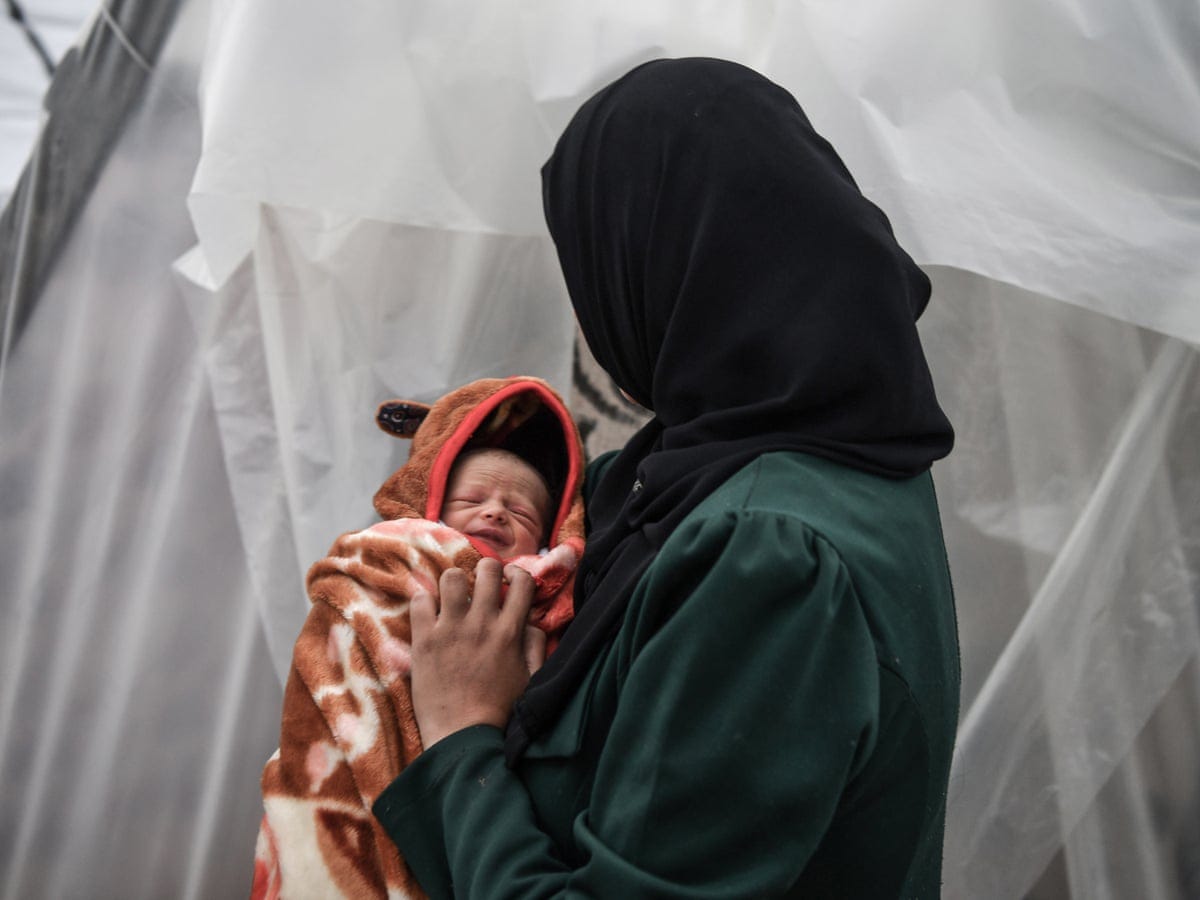Gaza Women Promised Food, Money, or Work for Sex
The Associated Press recently interviewed six women in Gaza and they all detailed the false promises that were made to them from receiving food, work, or money in exchange for sexual advances. Since this topic is considered taboo in their culture, all of them are anonymous.
VIA The Gaurdian
One of the women was struggling to survive and feed her six children in Gaza due to the artificial famine imposed by Israel. When a friend in a shelter told her about a man who could help with food, aid, and maybe a job, she thought she had found a lifeline.
She was promised a six-month contract with an aid agency. Once she thought she had signed the paperwork, a man drove her to an empty apartment. He told her to remove her scarf, that he loved her, he wouldn’t force her, but also that he wouldn’t leave her. They ended up having a sexual encounter, as she said, “I had to play along because I was scared, I wanted out of this place.”
He handed her 100 shekels before she left, which is approximately $30. Two weeks later, he gave her a box of medicine and a box of food. The job that was promised never materialized.
Other women recount men’s solicitation, with them saying “Let me touch you” or with more culturally coded language like “I want to marry you” or “Let’s go together somewhere.”
Four psychologists working with women in Gaza shared their experiences with the Associated Press. One said that her organization treated dozens of cases in which men sexually exploited vulnerable women.
Some of them ended up pregnant. Given that sex outside of marriage is culturally seen as a terrible offense, you can imagine how devastating this can be.
Some women say that they have been exploited multiple times by various men throughout the course of their lives. A 37-year-old mother of four said that she was approached twice, once by the head of the shelter. He offered her food and shelter if they “went together somewhere,” like to a secluded area. She refused.
Now that at least 90% of the population has been displaced, hunger and desperation are growing, and women say they’ve been pushed to make impossible decisions for the livelihood of themselves and their families.
Experts say that this is just the tip of the iceberg. Sexual violence is usually underreported, especially in humanitarian conflict zones, where data is not always reflective of the actual environment.
Experts in aid groups say that exploitation usually skyrockets during conflicts and other times of desperation, especially when people are displaced and rely on assistance for their livelihood. Similar reports have emerged from South Sudan, as well as Congo, Haiti, and other areas.
The testimonies of these women from Gaza shed light on an alarming and largely hidden crisis: the exploitation of vulnerable individuals during times of conflict and displacement, especially women and girls.
As famine, displacement, and desperation intensify, so too does the risk of sexual exploitation, especially for women with limited options and no protection. The accounts collected by the Associated Press reveal a pattern of broken promises, manipulation, and abuse masked by offers of aid and employment.
This is not an isolated issue, but rather part of a broader and recurring problem that has been observed in other humanitarian crises around the world. As experts warn, these stories likely represent only a fraction of the truth, as many victims remain silent due to fear, shame, or cultural stigma.
Addressing this issue requires not only urgent humanitarian assistance but also accountability, oversight, and protective mechanisms to ensure that aid does not become another weapon used against those it is meant to help.


